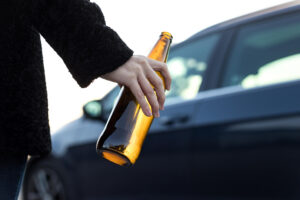
If you’ve been convicted of a DUI in California, understanding the SR-22 requirement is crucial for regaining your driving privileges. This document outlines what an SR-22 is, when you need it, and how it affects your ability to drive legally in the state. Contact Law Office of Michael L. Fell at (949) 585-9055 to request a free legal consultation.
What Is an SR-22 and Why It Matters
If you've been convicted of driving under the influence (DUI) in California, regaining your driving privileges requires more than just serving a suspension period. One key requirement is filing an SR-22 form, also known as a California Insurance Proof Certificate. Despite common misconceptions, an SR-22 is not an insurance policy; it is a certificate issued by your auto insurance company that verifies you carry the minimum liability coverage mandated by California law.
When Do You Need an SR-22 in California?
Following a DUI conviction, the California Department of Motor Vehicles (DMV) will suspend or revoke your driver’s license. To have it reinstated, you must demonstrate proof of financial responsibility, which typically involves maintaining an SR-22 for three years from the date of your conviction. This requirement ensures you meet the state's minimum liability insurance limits:
- $15,000 for injury or death to one person
- $30,000 for injury or death to more than one person
- $5,000 for property damage
Alternatively, you can satisfy proof of financial responsibility through a $35,000 cash deposit, a surety bond, or a self-insurer certificate.
What If You Don’t Own a Car?
Not owning a vehicle doesn’t exempt you from the SR-22 requirement. If you need to reinstate your driver’s license but don’t have a car, you can purchase a non-owner car insurance policy. This type of policy provides liability coverage that meets California’s minimum requirements, allowing you to file an SR-22 with the DMV.
Non-owner auto insurance is generally more affordable than traditional liability coverage, but not all insurance companies offer it. To qualify, you typically need to:
- Have a valid driver’s license or be eligible to obtain one with an SR-22 filing
- Not own a vehicle
- Not have regular access to another person's car
SR-22 Requirements for Restricted Driver’s Licenses
California law provides options for restricted driving privileges during a DUI-related suspension or revocation. The two main types are:
- Ignition Interlock Device (IID) Restricted License: Allows you to drive if you install an IID in your vehicle.
- Occupational Restricted License: Permits limited driving, such as commuting to and from work, even without an IID.
To qualify for either type of restricted license, you must file an SR-22 with the DMV, proving you have the necessary insurance coverage.
How Legal Guidance Can Help
Dealing with the aftermath of a DUI conviction can be overwhelming, especially when trying to navigate complex DMV requirements and insurance filings. Having experienced legal support can make a significant difference. Law Office of Michael L. Fell is here to guide you through each step of the process, from SR-22 filings to securing restricted driving privileges.
If you need help understanding your SR-22 obligations or assistance with your DUI case, contact Law Office of Michael L. Fell today at (949) 585-9055 to schedule a free consultation.

